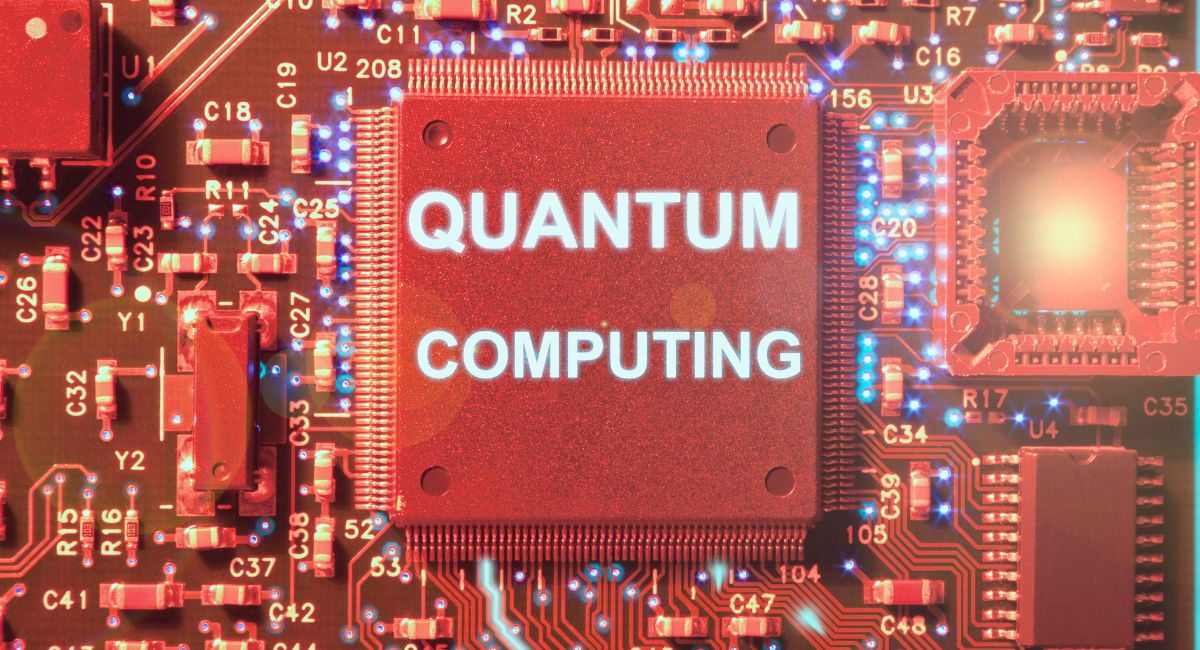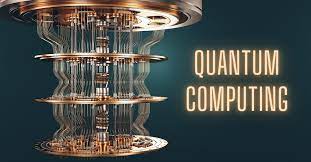Quantum Computers vs. Blockchain Technology: Exploring The Differences And Assessing Superiority
In the rapidly evolving landscape of technology, two cutting-edge concepts stand out – quantum computers and blockchain technology. These innovations are poised to reshape industries, yet they serve vastly different purposes. In this article, we’ll delve into the differences between quantum computers and blockchain technology and consider which, if any, can be deemed superior.
Quantum Computers: The Quantum Leap in Computing
Quantum computers represent a revolution in computational power. Unlike classical computers, which use bits as the smallest unit of information (either 0 or 1), quantum computers employ quantum bits or qubits. Qubits can exist in multiple states simultaneously due to the principles of quantum superposition and entanglement. This enables quantum computers to solve complex problems much faster than classical computers.
Key Features of Quantum Computers
- Parallel Processing: Quantum computers can perform multiple calculations simultaneously, which makes them exceptionally efficient for tasks like cryptography, optimization, and simulations.
- Breaking Encryption: Quantum computers pose a potential threat to conventional encryption methods. Their computing power could, in theory, decrypt many of the existing encryption standards, leading to concerns in the cybersecurity community.
- Scientific and Research Applications: Quantum computers are particularly valuable in scientific research, aiding in the development of new materials, pharmaceuticals, and solutions to complex problems in physics and chemistry.
Blockchain Technology: Decentralized Ledger of Trust
Blockchain technology, on the other hand, is a decentralized and distributed ledger system that underpins cryptocurrencies like Bitcoin. It serves as a transparent and immutable ledger that records transactions across a network of computers. Blockchains are secured using cryptographic techniques, making them tamper-proof and resistant to fraud.
Key Features of Blockchain Technology
- Decentralization: Blockchains operate without a central authority, allowing peer-to-peer transactions and reducing the need for intermediaries.
- Transparency and Security: Each transaction is recorded in a block, and once added, it cannot be altered. This transparency and security are fundamental for financial transactions, supply chain management, and more.
- Smart Contracts: Smart contracts, self-executing contracts with the terms of the agreement directly written into code, are a powerful feature of blockchain technology, automating various processes.
Comparing Quantum Computers and Blockchain Technology
Use Cases
The primary distinction between quantum computers and blockchain technology is their intended use. Quantum computers are designed to perform complex computational tasks, data analysis, and encryption-breaking. In contrast, blockchain technology aims to create trust and transparency in various applications, such as finance, supply chain management, and identity verification.
While quantum computers have the potential to break existing blockchain encryption methods, this doesn’t necessarily pit them against each other. Rather, they can be seen as complementary technologies. Quantum computing can be employed to enhance the security of blockchain networks by developing new encryption standards that are quantum-resistant.
https://twitter.com/i/status/1713952586431168599
Synergy and Cooperation
Quantum computers and blockchain technology can coexist and even complement each other. For instance, quantum computing can strengthen blockchain security by creating quantum-resistant encryption methods. Additionally, blockchain technology can be employed to provide transparency and traceability for quantum computing processes, helping ensure their trustworthiness.
Determining which technology is superior is a challenging task. They are not competitors; they serve distinct purposes. Quantum computers excel in data processing and analysis, while blockchain technology excels in creating trust and transparency in transactions. The key lies in understanding how they can work together to drive innovation and solve some of the world’s most complex problems.
Quantum Computers vs Blockchain: who wins? – The Cryptonomist via /r/Bitcoin https://t.co/LzRctoUOak
— Blue Pastel (@CoyotlCompany) October 20, 2019
Quantum Computing and Blockchain: A Promising Future
In conclusion, the realms of quantum computing and blockchain technology represent two distinct yet profoundly influential advancements in the tech world. Quantum computers harness the power of quantum mechanics to solve complex problems, while blockchain technology offers a decentralized, transparent, and secure way to record transactions. The convergence of these technologies presents a promising future, where they can collaborate to tackle some of the most challenging issues in science, technology, and beyond. The synergy between quantum computing and blockchain technology will likely fuel remarkable advancements and transformations in various fields in the years to come.
The Question of Superiority: An Intricate Balance
The fundamental point of comparison between quantum computers and blockchain technology is that they address entirely different challenges. Quantum computers are optimized for data processing, while blockchain technology is engineered to create trust and transparency in transactions. They serve such distinct purposes that it’s not feasible to declare one superior to the other.
Rather than being in direct competition, quantum computers and blockchain technology can be seen as complementary technologies. The potential of quantum computing to break traditional encryption methods is recognized as a challenge in the context of blockchain security. However, this also presents an opportunity to develop encryption standards that are quantum-resistant, strengthening blockchain security.
The crucial factor in assessing the potential superiority of one technology over the other is understanding that they can be integrated to create innovative solutions. Quantum computing can bolster the security of blockchain networks, ensuring that they remain robust against evolving threats. Simultaneously, blockchain technology can enhance transparency and traceability in quantum computing processes, verifying the legitimacy and integrity of quantum computations.
Also, read – What Is Quantum? What Does It Mean For Blockchain Security?
Conclusion: Synergy, Not Superiority
In conclusion, it is not a matter of quantum computers or blockchain technology being better than the other. They exist to serve distinct purposes, and their value lies in how they can complement and reinforce each other. The synergy between quantum computing and blockchain technology is where the real potential for innovation and advancement resides. As these technologies continue to evolve, their collaboration will likely lead to groundbreaking solutions across various fields, revolutionizing the way we approach complex problems and ensuring that data processing and security go hand in hand.
Stay informed with daily updates from Blockchain Magazine on Google News. Click here to follow us and mark as favorite: [Blockchain Magazine on Google News].
Get Blockchain Insights In Inbox
Stay ahead of the curve with expert analysis and market updates.
latest from tech
Disclaimer: Any post shared by a third-party agency are sponsored and Blockchain Magazine has no views on any such posts. The views and opinions expressed in this post are those of the clients and do not necessarily reflect the official policy or position of Blockchain Magazine. The information provided in this post is for informational purposes only and should not be considered as financial, investment, or professional advice. Blockchain Magazine does not endorse or promote any specific products, services, or companies mentioned in this posts. Readers are encouraged to conduct their own research and consult with a qualified professional before making any financial decisions.

 Bitcoin
Bitcoin  Ethereum
Ethereum  Tether
Tether  XRP
XRP  Solana
Solana  Dogecoin
Dogecoin  USDC
USDC  Lido Staked Ether
Lido Staked Ether  Cardano
Cardano  TRON
TRON  Avalanche
Avalanche  Toncoin
Toncoin  Chainlink
Chainlink  Wrapped stETH
Wrapped stETH  Shiba Inu
Shiba Inu  Wrapped Bitcoin
Wrapped Bitcoin  Sui
Sui  Stellar
Stellar  Hedera
Hedera  Polkadot
Polkadot  WETH
WETH  Hyperliquid
Hyperliquid  Bitcoin Cash
Bitcoin Cash  LEO Token
LEO Token  Uniswap
Uniswap  Litecoin
Litecoin  Pepe
Pepe  Wrapped eETH
Wrapped eETH  NEAR Protocol
NEAR Protocol  Ethena USDe
Ethena USDe  USDS
USDS  Aptos
Aptos  Internet Computer
Internet Computer  Aave
Aave  Cronos
Cronos  POL (ex-MATIC)
POL (ex-MATIC)  Mantle
Mantle  Ethereum Classic
Ethereum Classic  Render
Render  Monero
Monero  Bittensor
Bittensor  WhiteBIT Coin
WhiteBIT Coin  Dai
Dai  Artificial Superintelligence Alliance
Artificial Superintelligence Alliance  Virtuals Protocol
Virtuals Protocol  MANTRA
MANTRA  Arbitrum
Arbitrum 





